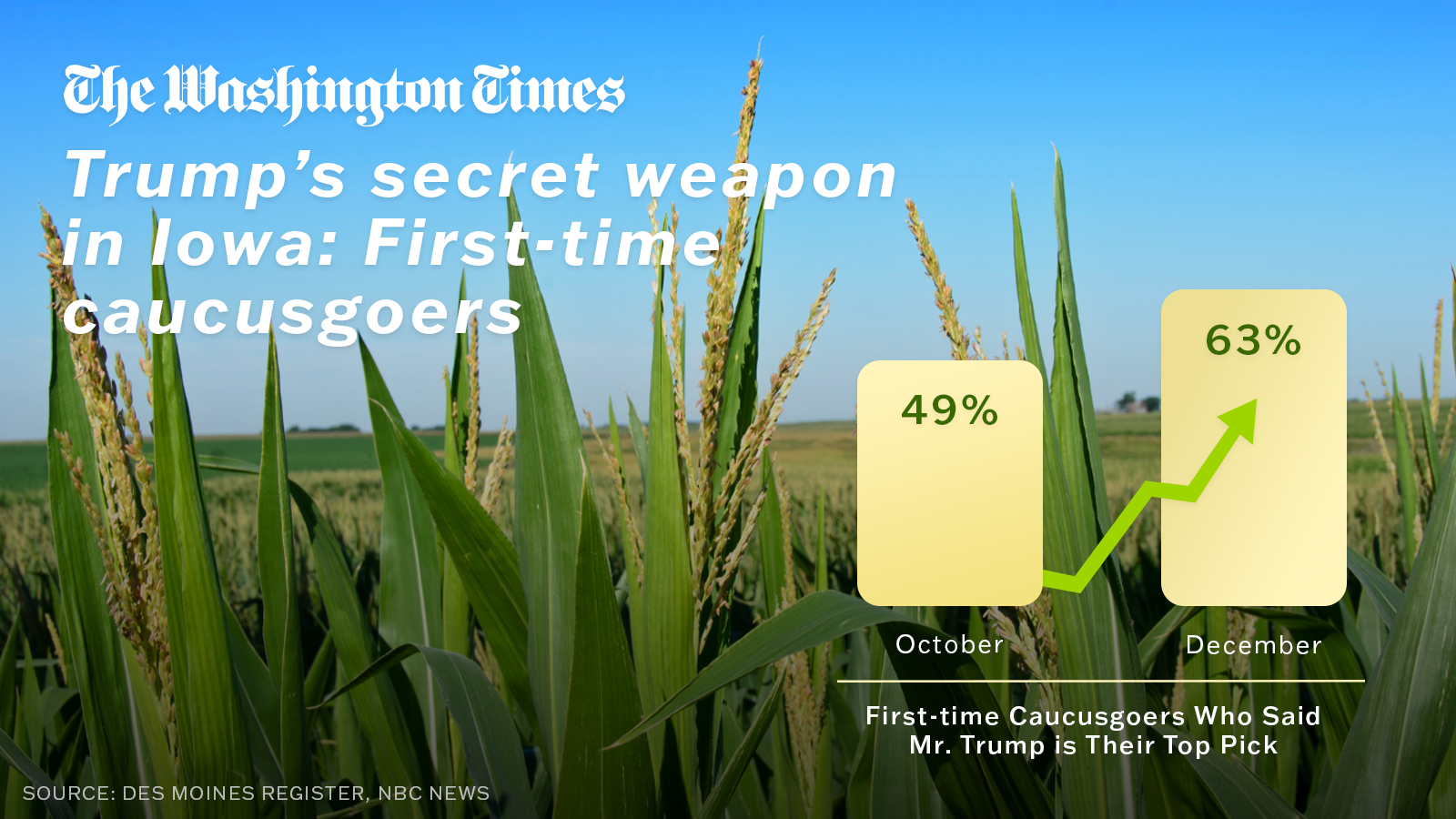A version of this story appeared in the On Background newsletter from The Washington Times. Click here to receive On Background delivered directly to your inbox each Friday.
KEOKUK, Iowa — Bryan Hewitt has flown a Trump flag and Trump banners at his auto body shop in the tiny town of Argyle for eight years.
The 61-year-old has never caucused for Donald Trump. Neither has his girlfriend, Dawn Beckinger, another die-hard Trump supporter.
If all goes according to plan, that will change Monday when they reach their caucus precinct to voice their support for the former president.
“I’m a loner, but Trump’s worth it, so I am going to get out,” said Mr. Hewitt, explaining that he did not believe Mr. Trump needed his support in the past.
He is not alone. According to a Des Moines Register/NBC News poll released last month, 63% of first-time caucusgoers said Mr. Trump is their top pick, marking a jump from 49% who said that in October.
Mr. Trump has taken a more traditional approach to the caucuses than he did eight years ago, when he finished second behind Sen. Ted Cruz of Texas.
Dennis Goldford, a political science professor at Drake University, said the Trump campaign in 2016 was “more showy” and more of a “fly-by-night” operation.
“Now, by all accounts, it is a much more fully staffed and functioning organization than before,” Mr. Goldford said.
Seeking to demystify the caucus process, the Trump campaign runs an explainer video at campaign events. The narrator says: “Making America Great Again starts one place on Earth, and one place only. Right here in Iowa.”
The video is followed by panel discussions in which county chairs, caucus volunteers and campaign advisers walk voters through the caucus process.
“We’re not taking any chances,” Mr. Trump said at a recent campaign stop. “The biggest risk is, you say, ‘You know what? He’s winning by so much, darling. Let’s stay home and watch television. Let’s watch this great victory.’ And if enough people do that, it’s not going to be pretty. But we’re not going to let that happen.”

Mr. Trump is betting a decisive win in Iowa could set the stage for an early knockout before the Republican presidential race moves to New Hampshire.
Ron DeSantis, Florida governor, and Nikki Haley, a former U.S. ambassador to the United Nations, hope to shake up the race with stronger-than-expected showings.
Caucuses are different from primaries. They require voters to show up at 7 p.m. at a high school cafeteria or community center gymnasium, sit through speeches and cast their support behind a candidate.
The process can be time-consuming. The forecast for Monday calls for subzero temperatures, adding another get-out-the-vote hurdle.
Indeed, some people who turn out for political events acknowledge that they do not plan to caucus.
“I went one year, and it was kind of a mess,” said Jeff Liddle, a Trump supporter from Dubuque. “It seemed like it took forever.”
Ms. Beckinger agreed that the process is confusing. “A lot of people don’t understand it,” she said.
She said she can’t sit out this election because she is convinced Mr. Trump won the 2020 election and she wants to do whatever she can to put him over the top.
“That is why I believe that election was stolen because I see so many people come over to the Republican Party for him — people that never voted before, and then you are telling me he lost?” she said. “Americans are sick of both parties. I think they’re the two-headed snake.
“So we support Trump because Trump is not part of that,” she said.
• Seth McLaughlin can be reached at smclaughlin@washingtontimes.com.




Please read our comment policy before commenting.